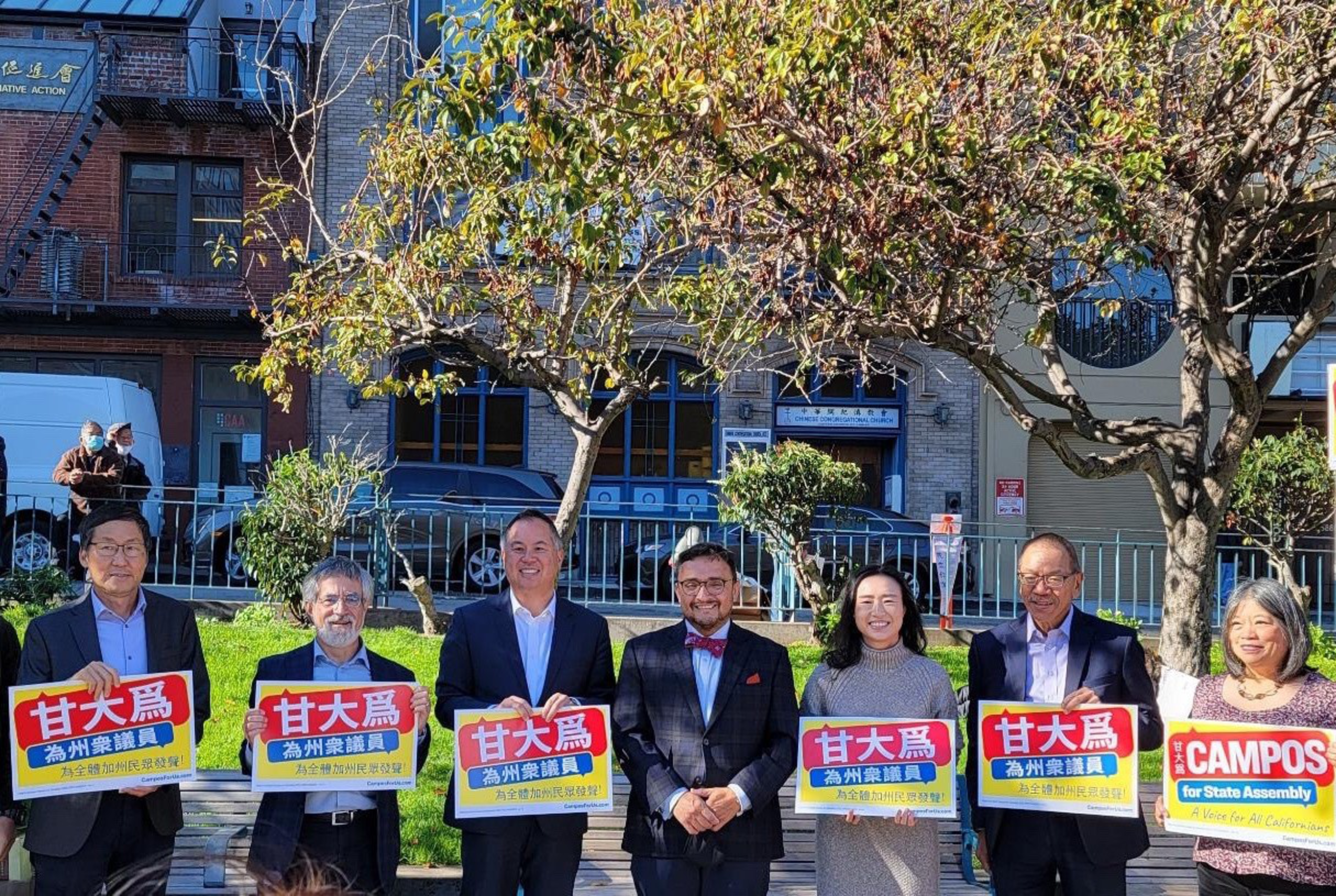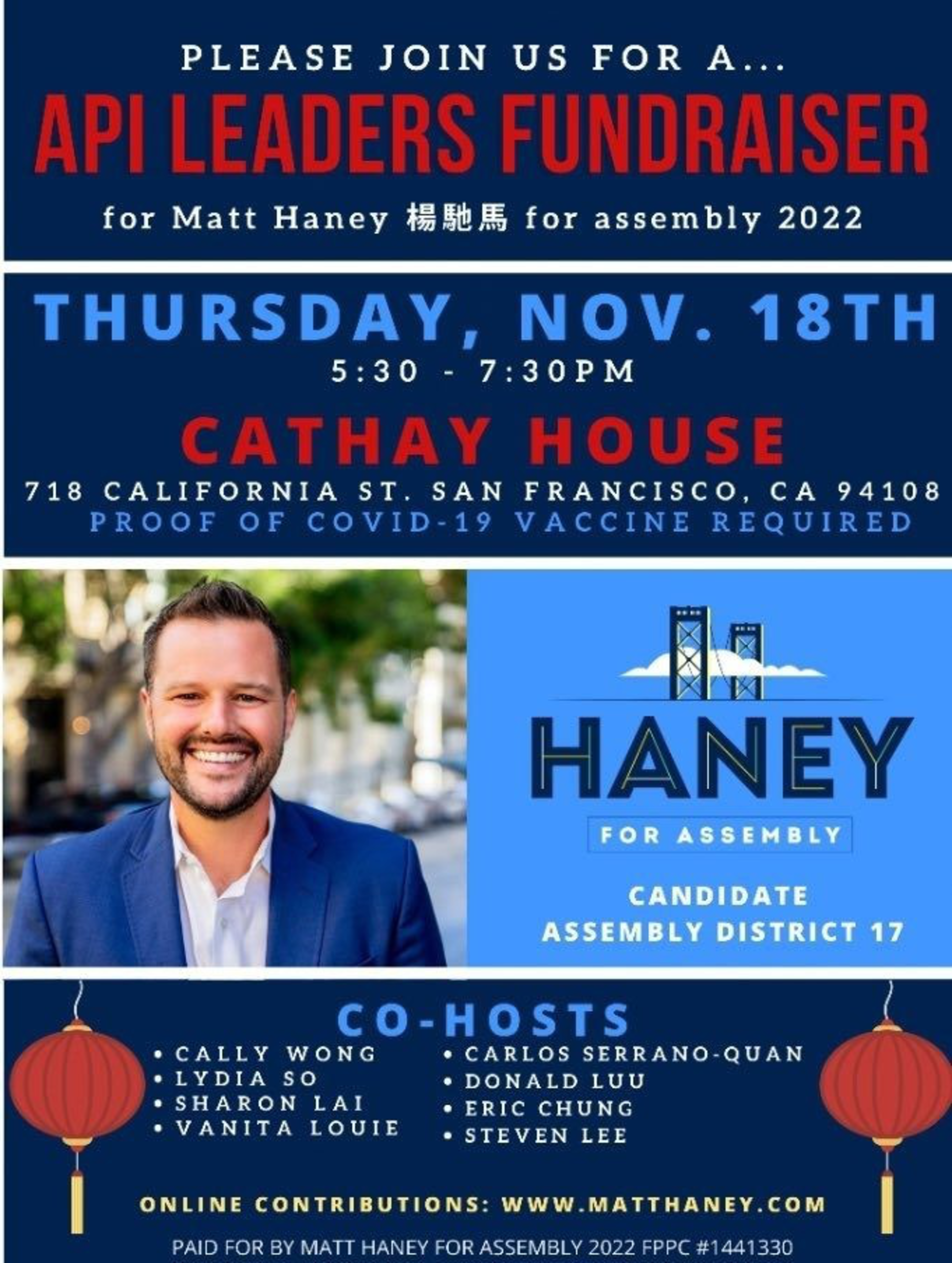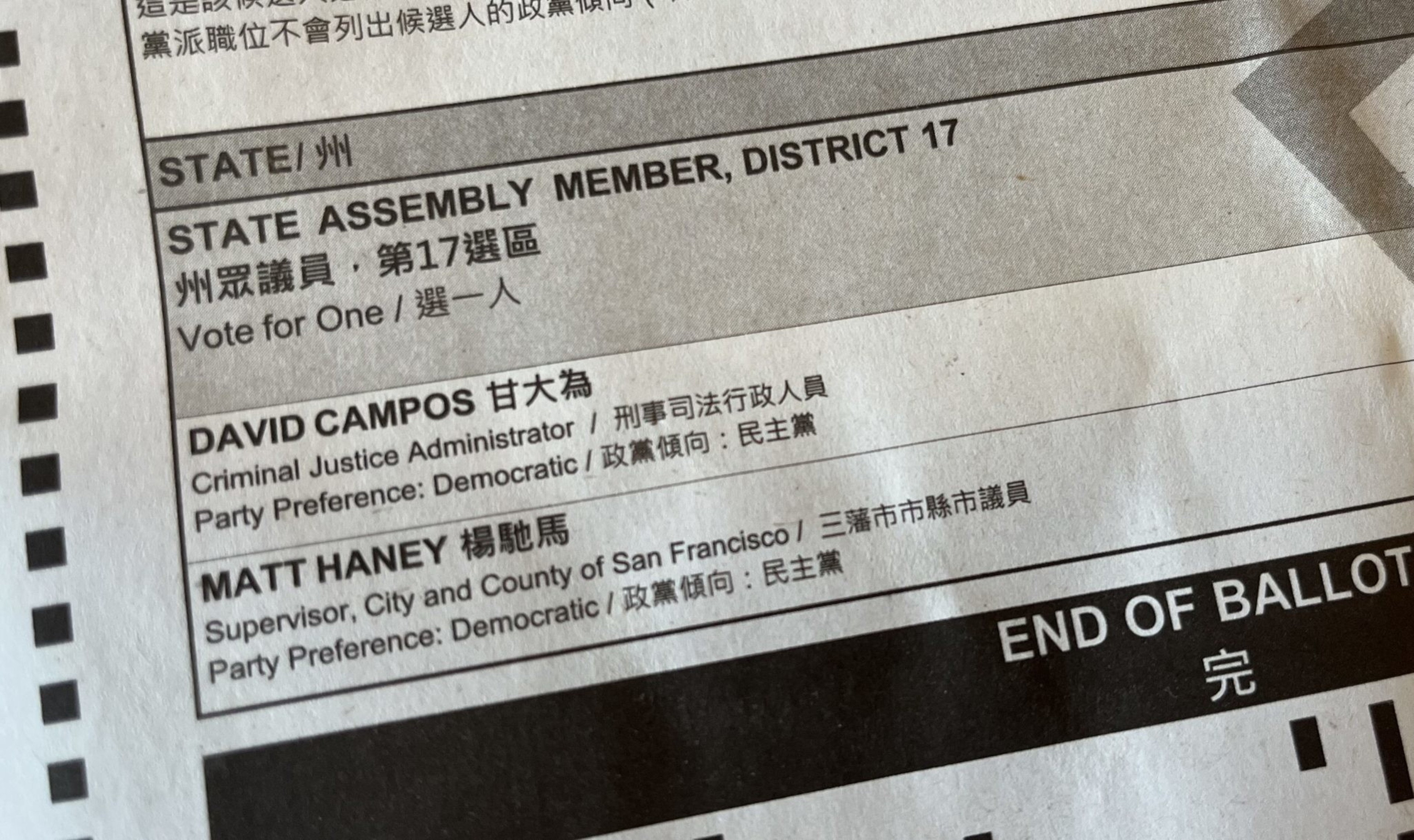On a chilly January morning in the Tenderloin, Matt Haney decided to get some early exercise. In a dress shirt and jeans—and in front of Chinese media cameras—the district supervisor waved his arms and moved around with a dozen Chinese American seniors (opens in new tab) before chatting with them.
Haney, who is facing David Campos in San Francisco’s state Assembly runoff election for District 17, knows the importance of a healthy daily routine. But this is campaign season, and both candidates have acknowledged that Asian Americans and Pacific Islanders (AAPI) will likely determine who wins.
“From day one on this campaign, we made reaching Chinese residents a focus,” Haney said after narrowly winning the special election primary in February. Haney finished on top of the four-person field with 36.4% of the votes, while Campos followed closely behind at 35.7%.
David Chiu’s decision to vacate the AD 17 seat after Mayor London Breed appointed him to become city attorney created the election, which will give the winner the job only through the end of this year. Since there is no Chinese American candidate in the race, the large pool of Asian American voters on the east side of the city, including people in Chinatown, Portola and Visitacion Valley, are being seen as up for grabs.
Asian Americans are playing an increasingly large role in elections across the country. Various factors have made the community more engaged, but the Stop Asian Hate movement seems to have triggered many people who were fed up with the rise in hate crimes during the pandemic.
Like Haney, Campos, who previously ran for the AD 17 seat and lost to Chiu in 2014, has focused much of this campaign courting Asian American votes. As an immigrant born and raised in Guatemala, Campos said he has deep ties with many voters who are first or second-generation immigrants.
“I have a special connection to the AAPI community,” Campos said, adding that his experience as an immigrant and person of color makes him better equipped to understand many Asian Americans’ experiences with racism and discrimination. Campos’ husband, Phil Hwang, is Korean American (opens in new tab), so the challenges faced by Asian Americans are “personal” to him.

Campos, a former supervisor who is currently on leave from his job as chief to staff of District Attorney Chesa Boudin, has lined up an impressive list of endorsements from Chinese American leaders (opens in new tab). Both of San Francisco’s current Chinese American supervisors, Connie Chan and Gordon Mar, as well as two recently retired Chinese American supervisors, Sandra Lee Fewer and Norman Yee, are all standing behind Campos in the race. Phil Ting, the city’s other assemblymember who represents the western half of San Francisco, is also backing Campos.
However, Asian American voters’ preferences don’t always align with their representatives, as seen with the recent school board recall.
Haney, who announced his candidacy in Chinatown (opens in new tab), fundraised in Chinatown and cast his vote in Chinatown with a parade of Chinese seniors (opens in new tab), got the most Asian American votes in February’s primary election. Many precincts with large Chinese populations, including Chinatown, turned out for Haney, even though that district’s supervisor, Aaron Peskin, is on Campos’ side. According to the Election Map SF (opens in new tab), precincts with higher percentages of Asian American voters are showing more support for Haney.
“We won in the Chinese community because Chinese voters want someone who has a track record of delivering results and fighting for them,” Haney said in a statement to The Standard.

Despite not having a single local Asian American elected leader’s endorsement, Haney has received support from lots of city commissioners. A November fundraising event in Chinatown titled “API Leaders Fundraiser,” featured powerful Chinese community members as well as API Council director Cally Wong, Chinese Chamber of Commerce Vice President Donald Luu, Muni board member Sharon Lai, Recreation and Parks Commissioner Vanita Louie, Entertainment Commissioner Steven Lee, and Historic Preservation Commissioner Lydia So.
In San Francisco’s Chinese-speaking world, news coverage of Campos and Haney campaigning for Chinese votes is everywhere. On a rainy day, Campos and Supervisor Chan participated in a merchant walk (opens in new tab) on San Bruno Avenue, where they talked to Chinese business owners. A month later, Haney and Police Commissioner Larry Yee (opens in new tab) were handing out masks in the same area.
Voting has already started in the April 19 special election, with ballots landing in voters’ mailboxes this month. Both candidates have authentic Chinese names printed right next to their English names. Haney is a “馳馬,” which means “racing horse,” while Campos has “大為” to denote “big accomplishments.”

“I do think that the AAPI vote is the swing vote,” said Campos, who is confident that as the campaign progresses over the next three weeks, more Chinese votes will come in for him.
But Haney seems undeterred. His campaign’s polling suggests he has a big advantage in the Chinese community (opens in new tab), and the endorsement he received from Bilal Mahmood—a Pakistani American tech executive who finished third in the primary with 22% of the vote (opens in new tab)—could be the bump that makes the major difference.
